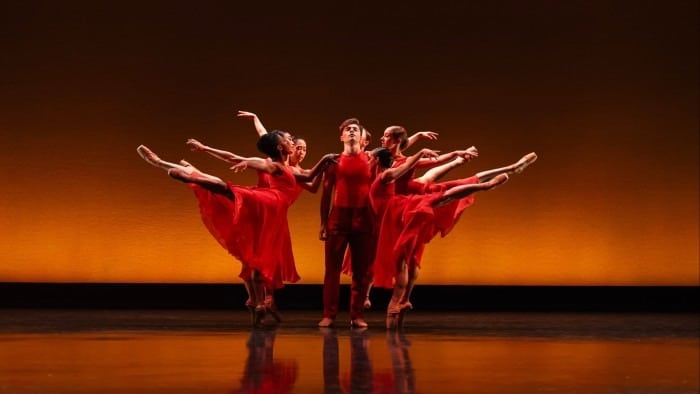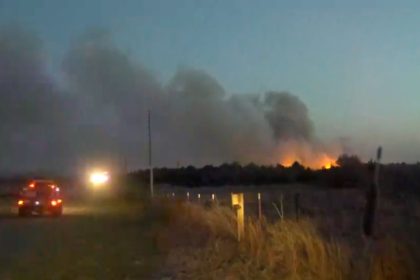The UK’s two largest and most renowned ballet companies have boldly chosen to launch their highly anticipated new seasons by programming triple bills showcasing a blend of modern classics and intriguing premieres. This marks a refreshing departure from relying solely on traditional full-length story ballets to anchor major revivals.
In Leeds, former illustrious Royal Ballet principal dancer Federico Bonelli ushered in his keenly watched inaugural season directing Northern Ballet at the company’s intimate Stanley & Audrey Burton Theatre home venue. His Generations triple bill, performed with live musical accompaniment throughout, provided an ideal platform to showcase his promising young troupe’s talents.

Upbeat and witty, Benjamin Ella’s generic yet pleasing opener Joie de Vivre featured brisk on-off romantic couplings between the dancers in the vein of Jerome Robbins’ seminal Dances at a Gathering. The meatier main course followed with Hans Van Manen’s Adagio Hammerklavier, the choreographer’s sternly elegant 1973 ballet set to Beethoven. But the tastiest flavors arrived via Bonelli’s shrewd commission from contemporary ballet wunderkind Tiler Peck of New York City Ballet fame. Peck’s phenomenal triumph performing in London last spring highlighted her prodigious gifts as dancer, curator and choreographer. Her new 30-minute, 10-person work Intimate Pages offered a welcome reminder.
★★★★☆

Beyond the vaguest of relationship narratives, Peck’s ballet brims with motion and ingenuity, responding to Janáček’s String Quartet No. 2 with the irrepressible exuberance of folk dance. The spinning ensembles echo the music’s early mania, yet she Engineers mercurial shifts in mood, tempo and texture, juxtaposing frisky jumps with languid spins.
Meanwhile across the country at Sadler’s Wells in London, English National Ballet’s thoughtfully conceived triple bill Our Voices represented incoming director Aaron S. Watkin’s calling card introduction. The evening glowingly commenced with George Balanchine’s glittering Theme and Variations, a speedy abstract classic from 1947. Prior to a step being danced, the geometric configurations of floating frothy tutus and tiaras designed by Roberta Guidi di Bagno elicited gasps and applause.
Balanchine’s brisk neoclassical choreography proves a thrilling visualization of Tchaikovsky’s Orchestral Suite No. 3, performed with stirring panache by conductor Gavin Sutherland leading ENB’s orchestra. While tackling its challenges courageously, the company’s dancers have not yet achieved the level of confidence and unison this exacting work demands. More polish is needed, as pirouettes were shallow and landings patched together.
The program concluded with the premiere of David Dawson’s Four Last Songs, an elegant yet uninvolving abstract piece set to Richard Strauss’ valedictory orchestral song cycle. His stoic body-stockinged ensemble diligently powered through the seamless choreographic patterns, but found themselves upstaged by soprano Madeleine Pierard’s yearningly ethereal vocals.
Sandwiched between was a puzzling revival of Andrea Miller’s grimly re-imagined Les Noces, Ascent to Days, originally commissioned by Watkin’s predecessor Tamara Rojo. Miller audaciously abandons Stravinsky’s ritualistic Russian peasant wedding premise, instead envisioning the ballet as a harrowing postscript to The Rite of Spring focused on the Chosen One’s grieving parents questioning their community’s sacrificial rites.
Dominated by Phyllida Barlow’s imposing crumbled stone staircase set, Miller’s tortured allegorical concept remains confusing, while her convulsive choreography fails to match the ritual potency of Nijinska’s stark 1923 Rite original and its unflinching portrayal of senseless tradition.
★★★★☆
Northern Ballet at the Royal Opera House’s Linbury Theatre, London, October 31-November 2, roh.org.uk
English National Ballet at Sadler’s Wells, London, to September 30, sadlerswells.com



